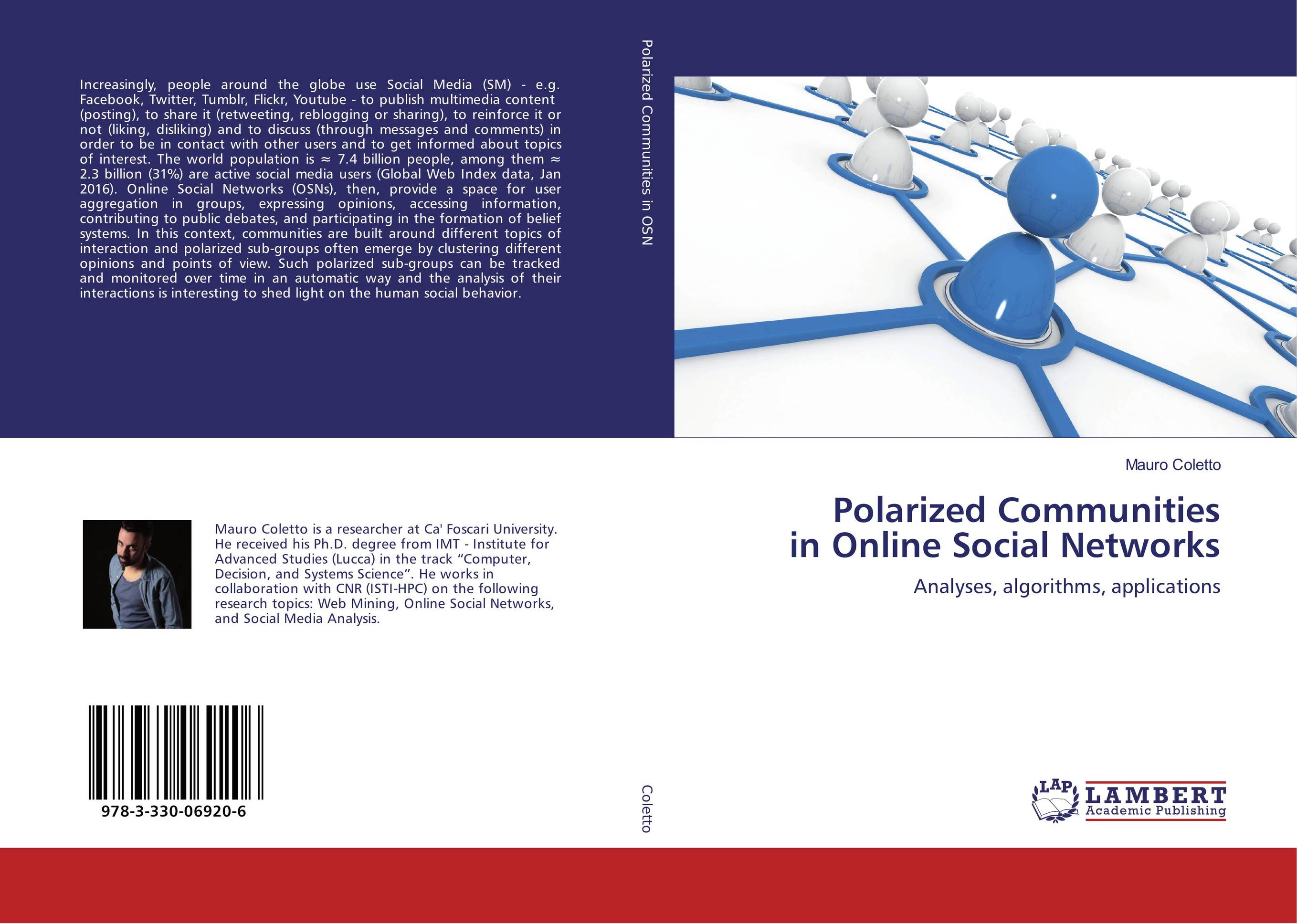| Поиск по каталогу |
|
(строгое соответствие)
|
- Профессиональная
- Научно-популярная
- Художественная
- Публицистика
- Детская
- Искусство
- Хобби, семья, дом
- Спорт
- Путеводители
- Блокноты, тетради, открытки
Polarized Communities in Online Social Networks. Analyses, algorithms, applications

В наличии
| Местонахождение: Алматы | Состояние экземпляра: новый |

Бумажная
версия
версия
Автор: Mauro Coletto
ISBN: 9783330069206
Год издания: 2017
Формат книги: 60×90/16 (145×215 мм)
Количество страниц: 212
Издательство: LAP LAMBERT Academic Publishing
Цена: 46233 тг
Положить в корзину
Позиции в рубрикаторе
Отрасли знаний:Код товара: 171262
| Способы доставки в город Алматы * комплектация (срок до отгрузки) не более 2 рабочих дней |
| Самовывоз из города Алматы (пункты самовывоза партнёра CDEK) |
| Курьерская доставка CDEK из города Москва |
| Доставка Почтой России из города Москва |
Аннотация: Increasingly, people around the globe use Social Media (SM) - e.g. Facebook, Twitter, Tumblr, Flickr, Youtube - to publish multimedia content (posting), to share it (retweeting, reblogging or sharing), to reinforce it or not (liking, disliking) and to discuss (through messages and comments) in order to be in contact with other users and to get informed about topics of interest. The world population is ? 7.4 billion people, among them ? 2.3 billion (31%) are active social media users (Global Web Index data, Jan 2016). Online Social Networks (OSNs), then, provide a space for user aggregation in groups, expressing opinions, accessing information, contributing to public debates, and participating in the formation of belief systems. In this context, communities are built around different topics of interaction and polarized sub-groups often emerge by clustering different opinions and points of view. Such polarized sub-groups can be tracked and monitored over time in an automatic way and the analysis of their interactions is interesting to shed light on the human social behavior.
Ключевые слова: Facebook, online social networks, Polarization, Twitter, community controversy



